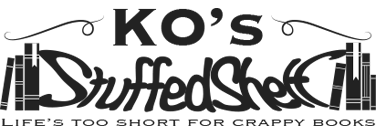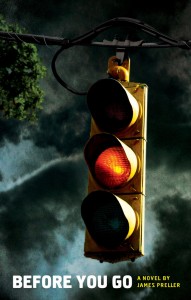The summer before his senior year, Jude (yes, he’s named after the Beatles song) gets his first job, falls in love for the first time, and starts to break away from his parents. Jude’s house is kept dark, and no one talks much—it’s been that way since his little sister drowned in a swimming pool seven years ago when Jude was supposed to be watching her.
Now, Jude is finally, finally starting to live. Really live. And then, life spins out of control. Again.
Acclaimed author James Preller explores life, death, love, faith, and resilience in his first young adult novel that will grip readers from the book’s dramatic first few pages to its emotional end.
The Excerpt:
Jude squeezed his eyes shut, blinking away the sun’s glare, and waited for the eight-fifteen-in-the-freaking-morning bus. On a Saturday, no less. The stop was located beneath the elevated Long Island Rail Road, with rails that hummed overhead and stretched across the length of the island, connecting the farthest points east all the way to Pennsylvania Station in Manhattan. For as long as he could remember, New York City had beckoned to Jude, offering an exotic world of freedom and possibility. The city stood as a skyscrapery refutation of his suburban life, escape only a train ticket and forty-five minutes away.
He sat cross-legged on the curb, leaned back on his hands, and scanned the road for coming traffic. Most people around here drove like psychopaths, and Jude wasn’t eager to have his legs run over. It might ruin his weekend, the bleeding stumps, all that dragging around. Better, he thought, not to get run over in the first place, so he cast a wary eye down the road. Today was the first day of the rest of his life, and Jude would spend it at Jones Beach—starting a new summer job in the food-service industry. There were still a couple of weeks of school left and the grind of finals, but they needed workers on weekends, and Jude wasn’t in a position to make anybody wait. Jobs weren’t easy to find, and his skills, Jude had discovered, were not highly in demand, as he had none.
Barely awake, he had dressed in the required uniform of black pants and orange T-shirt. Because naturally you wear black pants to the sun-baked beach. Jude Fox was on his way to becoming a minimum-wage flunky, a burger-grilling, soda-spilling concession-stand worker.
The morning sun shone not high above the horizon, garish and bright, so Jude stepped back into the station’s cool cement shadows. It was going to be a hot one, the first scorcher of summer—not a cloud in sight, just blue June skies. In truth, Jude didn’t hate the idea of working. He’d heard that beach jobs could be okay, even fun. But Jude was a realist; he knew it would basically blow. Or suck. Strange how those two words, blow and suck, both conveyed the same and yet totally different meanings. It blew, it sucked: same thing. Weird. He’d heard people complain about their jobs all his life. Why should his job be any different? So he couldn’t help but wonder if getting a job had been a colossal mistake. Sometimes it felt to Jude that he was just like those trains overhead, traveling between two steel rails, the course of his life mapped out long ago. No steering wheel, no brakes. Jude followed the path carved out for him, no different from anybody else.
These are the thoughts you have when you wake up too early on a Saturday morning.
Jude had taken this particular bus many times before, usually with a murder of boys dressed in shorts or baggy bathing suits, with beach towels rolled in tubular fashion or backpacks slung over their shoulders. They went to hang in the sand, admire the girls, swim if the jellyfish weren’t too bad, wander the boardwalk, and later, catch a bus home, sunburned and happy.
A few glassy-eyed stragglers gathered at the stop, mostly young beach workers in Halloween colors. It was too early for the leather-skinned beach crowd. Jude knew a few of the guys at the stop, not interested in talking, so did the chin-lift thing. They were all in the same boat as Jude—or, very soon, the same bus; the learner’s permit crowd, old enough to work an entry-level job, not old enough to drive there.
Jude had considered running to the beach, about seven miles door to door, but that would’ve required setting his alarm even earlier, and then he’d need a place to shower once he got there. His body could absorb a run like that no problem, but it could make for a long day if work turned out to be tough. Maybe another time, after he scoped out the job situation. His dad was already up and out, gone for the day. Jude had half hoped his mother would offer to give him a lift, step up this one time, but he knew not to count on miracles. As a matter of personal policy, Jude kept his expectations low to avoid disappointment. That was the strategy, anyway.
A good-looking girl whom Jude knew a little bit showed up, the beautiful Dani Remson with long legs that went all the way up to her shoulders. She’d had a brief thing with his friend Corey about six months back. Something about Dani had always made Jude uneasy, maybe because she was a predatory goddess with brown eyes that lasered right into him. So, head down, Jude busied himself with the apps on his cell, and that worked sufficiently well. After a teasing, sing-songy, “Mooorning, Jude,” Dani brushed past him to join another girl who stood clutching a can of Diet Pepsi.
The bus came and everybody shuffled onboard, feet dragging. Jude grabbed a seat toward the back, stuffed in earbuds, found the Cure on his iPod, gazed out the window for the ride south on Wantagh Parkway. Jude had been obsessing over the Cure lately, especially the best tunes off Disintegration. As a band, they peaked in the early 90s, but Jude liked them anyway. Music was music; it didn’t matter if a song was made fifty years ago in Liverpool, England, or behind some guy’s woodshed five minutes ago. The good tunes stuck and the rest dropped away. Some days Jude could listen to “Pictures of You” on an endless repeat cycle, losing himself in the interplay of guitar, synthesizer, and bass. That the Cure’s songs were often dark, brooding, and melancholy only made it all the better. Jude didn’t really go for the Cure’s poppier, radio-ready numbers. He had played guitar for eight years now, practicing four, five times a week. Guitar was his retreat. It was a door closing, shutting the world out, and a window opening, connecting him to something other, a rift in space through which he escaped for hours at a time. Jude felt, not without reason, that music had saved his life. But, hey, music made everything better—even bus rides to a particular version of sucks called My First Day on the Job.
The bus dropped the passengers off near the huge traffic circle at Central Mall, Field Four. This was the busiest, most crowded, commercial area of Jones Beach, loosely divided into fields. The famous Jones Beach watertower signaled a visitor’s entrance to the beach. The iconic tower thrust skyward at more than 225 feet. It dominated the flat horizon like an extended middle finger. Young children called it the pencil, usually in a happy squeal, for it announced their arrival. Here you go, happy beachgoers, now pay your parking fee and grab a patch of sand.
Jude turned his back to the tower and walked toward the boardwalk like everybody else in sight—it was either that or step into traffic—then turned right to wind his way to operation headquarters where he’d been told to check in. The building wasn’t much, a trailer on steroids obscured by a scraggle of bushes, tucked behind the men’s bathroom. Jude noted that it offered showers and lockers, definitely useful if he ever wanted to run to work some morning.
He hesitated in the open doorway, looking in at a thin, middle-aged man dressed in a white short-sleeved shirt and dark tie seated behind a gray metal desk. The man, obviously a boss-type individual, had sinewy arms covered in thick curly hair, like some kind of tree-climbing forest creature. His jaw muscles worked on a stick of gum. A nameplate on the desk read KEATING. No dummy, Jude took that for the guy’s name. Keating spoke into his phone in fits and spurts, listening impatiently before barking out directives such as, for example, “We’ve got to get those freezers fixed, or we’ll have fifteen goddamned hundred pounds of melted chopped beef on our hands!” If he noticed Jude’s presence, Keating didn’t bother to glance up. Even after snapping shut the phone, Keating continued to ignore Jude, concentrating instead on working his gum while tapping a pencil against the side of his head.
Tap, tap, tap. Anybody home?
Jude recognized Keating’s performance for what it was, a random, unnecessary, and totally unimpressive display of power. So Jude said, “Yeah, hi, excuse me, I was—”
Keating raised a hand for silence. “Grab some bench, son. The car’ll be back in a few minutes. Where you going?”
“Going?” Jude asked. “I just got here.”
Keating raised his chin to give Jude a long look. The career food-service manager was lean and square-jawed, a wiry man, a runner no doubt, and he chomped on gum as if it had hurt his feelings. One of those marathoner guys Jude saw everywhere filling the roadways in his neighborhood, galloping down the street as if they were chasing immortality. His own father was one of them.
“This your first day?” Keating asked.
“Yeah, yes,” Jude said, pulling some rumpled papers from his back pocket. “They told me to—”
“And you are?…”
That stumped Jude for a second. He wavered, befuddled. Jude’s mind didn’t at first recognize it as a question, so he stood like a lowland gorilla, waiting for Keating to finish the sentence, tell Jude what he was, exactly, before finally answering, “Fox, Jude Fox.”
“You sure about that, son? You need more time to think about it?” Keating cracked. He reached for Jude’s papers as if they’d been soaked in poison. Unsmiling, he poured coffee down his throat and unsmiled some more.
Things were going just swell.
Jude shifted on his feet, glancing around at the grim, cluttered office. It truly was nothing more than a transformed trailer. Jude hated this whole scene already with a passion he usually reserved for chemistry teachers, party clowns, and the Grammys. Worst of all, Jude was pretty sure he wasn’t getting paid yet. So all this pleasant chitchat came absolutely free.
Keating’s phone chimed the opening riff to some Billy Joel tune—“We Didn’t Start the Fire”—and the man paused before answering. He jerked a thumb, gesturing outside. “Like I said. Find some pine, sit on it, and we’ll get to you.” Keating didn’t need to call Jude a dumb-ass; it was implicit.
Jude took a couple of steps back, more than happy to get away from the runty marathoner and his Napoleon complex. Outside, there wasn’t a chair in sight; confused, Jude looked back at Keating.
“Around the corner,” Keating said. Then he grumbled into the phone, “It’s a parade of lost lambs around here, yeah, yeah,”—he laughed like a toothy hyena at some joke—“everybody’s looking for new talent. Right now all’s I got is a couple of guys with that deer in the headlights look. I’ll send you what I got.”Copyright © 2012 by James Preller







